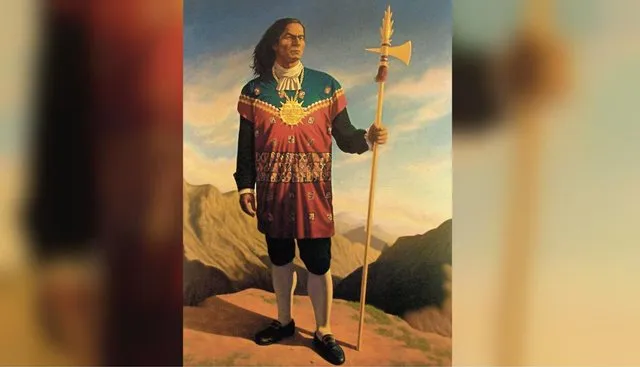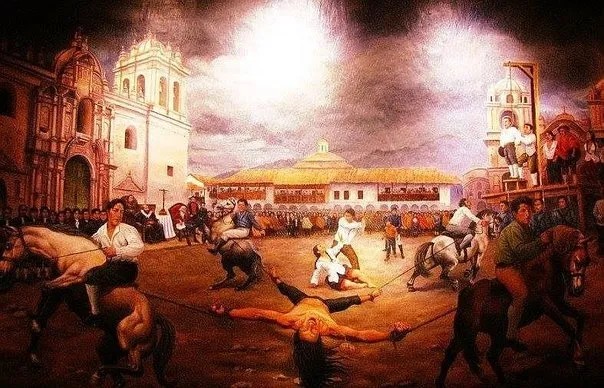
Pedro Casaldáliga, Catalan bishop, writes on the margins of North America of the times: "I write to all of you, who have had their lives for life, on the streets and in the mountains, in workshops and fields "In the schools and in the churches, under the night or the sunlight. For you, above all, our America is the continent of death with hope."
Among the many who in America have given their lives for life, we can not forget a man named José Gabriel Condorcanqui.
Condorcanqui was a descendant of the Inca Felipe Túpac Amaru, who after a rebellion had been assassinated in 1579. Condorcanqui had been a pupil of the Jesuits in Cuzco and when the Viceroy was responsible, the indigenous leader in 1780 an insurrection of Indians and mestizos, a of the most important uprisings of the colonial era.
Condorcanqui remembered his ancestor, also rebellious, murdered by the Spaniards and decided to take his name Túpac Amaru.
Then, the colonialist troops learned of their fierceness in the battle, and Túpac Amaru was preparing to take Cuzco, to which Spanish reinforcements from Lima and at the same time was betrayed by a mestizo ceto named Francisco de Santa Cruz.
Túpac Amaru, was captured and murdered in Cuzco; The same destiny had his wife, his son and his brother-in-law.
The Independence Movement in Upper Peru, continues for two more years, thanks to the Katari brothers, and the uprising of Túpac Amaru, although it was suppressed, served for the modification of the taxes on the natives.
The death of Túpac Amaru happened on a day like today, May 18, 1781.
